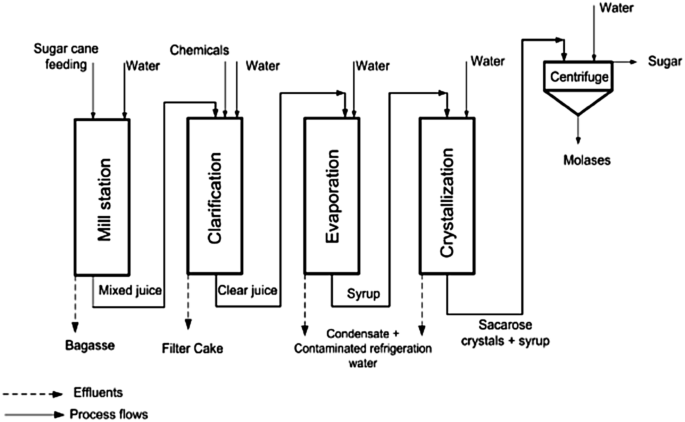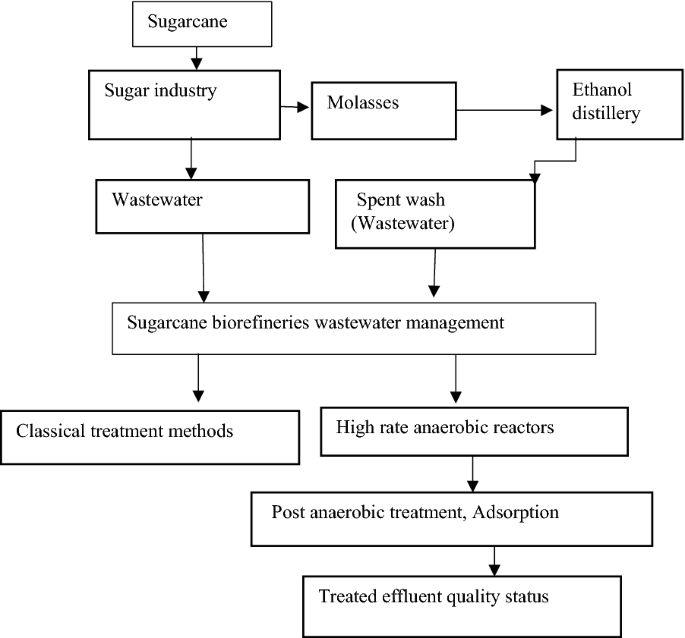How Products From Sugarcane Are Reshaping Sustainable Living
How Products From Sugarcane Are Reshaping Sustainable Living
Blog Article
Discover the Cutting-edge Benefits of Products From Sugarcane for Sustainable Living
Sugarcane has emerged as a pivotal resource in the pursuit for lasting living. Its diverse applications extend eco-friendly packaging, renewable resource, and healthier food alternatives. As sectors seek green alternatives, sugarcane's convenience offers promising services. The true capacity of sugarcane extends beyond its current usages. Exploring its cutting-edge advantages can reveal brand-new pathways toward an extra sustainable future. What other possibilities might this impressive plant hold?

The Surge of Sugarcane as a Sustainable Source
As global understanding of ecological issues grows, sugarcane has emerged as a famous sustainable source. This flexible crop uses an array of benefits that add to green methods. Sugarcane is a sustainable source, with the ability of flourishing in diverse environments while taking in carbon dioxide, consequently mitigating greenhouse gas emissions. Its fast growth cycle permits frequent harvesting, resulting in a continual supply of raw material.Additionally, sugarcane growing usually needs less water contrasted to other plants, making it an effective alternative in water-scarce regions. The byproducts of sugarcane, such as bagasse and molasses, can be repurposed for numerous applications, reducing waste and advertising round economy principles. Furthermore, advancements in agricultural techniques have caused even more lasting farming techniques, even more enhancing sugarcane's ecological account. As customers significantly look for sustainable options, sugarcane stands apart as a feasible choice for those dedicated to minimizing their eco-friendly impact.
Biodegradable Product Packaging Solutions
Just how can biodegradable packaging services change the way customers approach sustainability? By using sugarcane-based materials, these ingenious services offer an engaging option to conventional plastics. Eco-friendly packaging made from sugarcane decays naturally, markedly reducing landfill waste and greenhouse gas discharges. As consumers become significantly knowledgeable about their environmental effect, the need for lasting packaging continues to rise.These sugarcane-derived products not only serve sensible functions but also line up with eco-conscious customer values. They supply a substantial way for people and organizations to add to a round economic situation, advertising resource efficiency and minimizing ecological footprints. In addition, as sectors embrace biodegradable options, they promote a culture of sustainability that reverberates with a growing demographic looking for liable choices.In essence, biodegradable product packaging services from sugarcane represent a crucial action forward in lasting methods, equipping customers to make ecologically pleasant choices without sacrificing ease or top quality.
Renewable Energy Generation From Sugarcane
A considerable section of renewable power generation can be acquired from sugarcane, showcasing its adaptability past standard farming uses. Sugarcane biomass, including bagasse and leaves, is a powerful source for bioenergy production. This biomass can be converted into biofuels such as ethanol, which works as a cleaner alternative to nonrenewable fuel sources. Additionally, the burning of sugarcane results creates steam and electrical power, providing an energy resource for sugar mills and nearby communities.The growing of sugarcane additionally adds to carbon sequestration, as the plants soak up carbon dioxide throughout their development cycle. By utilizing sugarcane for power, waste is lessened, and lasting techniques are motivated. This renewable resource method not just supports energy needs but additionally promotes rural growth, creating jobs in bioenergy industries. In general, sugarcane stands out as a principal in the shift to lasting power services, straightening with worldwide initiatives to decrease carbon footprints.

Eco-Friendly Textiles and Fabrics
Environment-friendly textiles and fabrics originated from sugarcane provide a promising option to traditional products. These biodegradable options not just lower environmental impact yet also offer toughness and performance comparable to conventional fabrics. Lasting manufacturing processes even more boost their charm, making them an essential component of a lasting way of living.
Naturally Degradable Fabric Alternatives
Why is the change toward biodegradable fabric alternatives vital for lasting living? The boosting awareness of ecological destruction has motivated a look for options to conventional textiles, which often add to contamination and waste. Naturally degradable fabrics, originated from renewable energies such as sugarcane, supply a promising solution. These materials disintegrate normally, reducing landfill buildup and reducing ecological influence. Additionally, they can assist lower carbon impacts and reliance on fossil gas. As consumers come to be a lot more eco-conscious, the demand for lasting fabrics expands, motivating producers to invest and innovate in biodegradable options. This modification not only supports sustainable practices however additionally fosters a round economy, leading the way for an extra responsible approach to style and textile production.
Longevity and Efficiency
Sturdiness and performance are essential variables when assessing green fabrics and fabrics. Sugarcane-derived products demonstrate remarkable strength and strength, making them appropriate for numerous applications. These textiles usually display remarkable moisture-wicking residential properties, which boost comfort in daily wear. Furthermore, their natural fibers add to breathability, making certain that garments continue to be wearable and fresh also sought after conditions. The efficiency of sugarcane-based fabrics extends to their resistance to tear and put on, allowing items to preserve their stability in time. In addition, these environmentally friendly fabrics can be dealt with to improve UV defense and tarnish resistance, fulfilling the practical requirements of customers without compromising sustainability. Eventually, sugarcane materials use an unified balance of toughness and performance, appealing to ecologically conscious people.
Sustainable Manufacturing Procedures
The outstanding toughness and efficiency of sugarcane-derived textiles are matched by lasting manufacturing procedures that prioritize environmental obligation. These procedures utilize renewable resources, lessening reliance on fossil fuels and lowering carbon impacts. By harnessing the by-products of sugarcane growing, producers can develop environment-friendly materials while advertising waste reduction. Advanced techniques, such as water-efficient dyeing and biodegradable therapies, better enhance the sustainability of these fabrics. Furthermore, using safe chemicals warranties that the production process does not damage environments or human health and wellness. This commitment to sustainability not only charms to ecologically aware customers however additionally supports regional economic situations by promoting sustainable farming methods. In general, sugarcane-derived textiles represent a substantial step in the direction of a greener future in the fashion market.
Sugarcane-Based Biofuels and Their Impact

Sugarcane-based biofuels have become a substantial different energy resource, offering a sustainable remedy to the world's growing power needs. These biofuels, originated from the fermentation of sugarcane juice or molasses, offer a more lasting choice compared to fossil gas. Their manufacturing procedure produces lower greenhouse gas emissions, adding to climate adjustment mitigation efforts.Additionally, sugarcane biofuels can improve power protection by diversifying power sources and minimizing dependancy on imported oil. The growing of sugarcane also advertises rural growth, developing work and stimulating regional economies.However, problems regarding land use and food competitors persist, as raised biofuel production may influence food supply chains. Sustainable farming practices are crucial to stabilizing these making certain and contending passions that biofuel manufacturing does not threaten food safety. Overall, sugarcane-based biofuels represent a promising avenue for a greener power future, supplied that their social and ecological implications are carefully handled.
Much Healthier Alternatives: Sugarcane in Food Products
While numerous customers seek much healthier options look at this site in their diets, sugarcane products use a nutritious choice to fine-tuned sugars and man-made sweeteners. Stemmed from the natural removal of sugarcane juice, these products maintain essential nutrients, consisting of minerals and vitamins, that are usually lost in processed sugars. Sugarcane includes anti-oxidants and nutritional fiber, adding to overall health and wellness and wellness.Many health-conscious individuals are transforming to sugarcane syrup and jaggery, which give a lower glycemic index compared to traditional sugars, making them suitable for those managing blood sugar level levels. Additionally, sugarcane-derived sweeteners can improve the flavor of various dishes without the damaging effects associated with synthetic additives.This shift towards all-natural artificial sweetener not only promotes far better nutritional choices but also aligns with lasting living practices, as sugarcane is a sustainable source. For that reason, sugarcane products are becoming desirable alternatives in the domain name of food products.
The Future of Sugarcane in Sustainable Advancements
The future of sugarcane is positioned to include ingenious applications that extend past conventional uses. Its prospective as a resource for naturally degradable product packaging solutions and renewable power resources highlights its role in sustainable techniques. Discovering these developments could significantly affect environmental conservation and source administration.
Naturally Degradable Product Packaging Solutions
An increasing number of companies are transforming to eco-friendly packaging services originated from sugarcane as an appealing option to standard plastics. These cutting-edge materials, frequently made from sugarcane fibers and bioplastics, break down normally, minimizing the durable environmental impact related to conventional plastic waste. By utilizing eco-friendly resources, sugarcane-based product packaging contributes to a much more sustainable manufacturing cycle, straightening with worldwide efforts to combat pollution and climate change. Furthermore, these options typically maintain the durability and functionality required for various applications, from food containers to shipping materials. As customer need for environment-friendly options grows, organizations taking on sugarcane product packaging not only boost their brand name image yet additionally play a critical duty in cultivating a circular economy, paving the means for a greener future.
Renewable Power Resources
Biodegradable product packaging options are just one aspect of the wider capacity of sugarcane in advertising sustainability. One more substantial application exists in renewable resource sources. Sugarcane is a functional crop that can be made use of to generate biofuels, such as ethanol, which offers as a cleaner choice to fossil fuels. The fermentation process of sugarcane juice yields ethanol that can power lorries and create electricity. Additionally, the by-products of sugarcane handling, like bagasse, can be utilized to generate biomass energy, offering a effective and lasting method to harness energy. This dual duty as both a source of biofuel and biomass emphasizes sugarcane's possibility in minimizing carbon discharges and sustaining a change to a much more sustainable power landscape in the future.
Frequently Asked Inquiries
Just How Is Sugarcane Harvested Sustainably?
Sugarcane harvesting can be sustainable with techniques like hands-on cutting, which decreases soil disturbance, and making use of machinery that lowers fuel usage (Products From Sugarcane). Crop rotation and integrated bug administration additionally improve ecological health and wellness and advertise lasting soil fertility
What Are the Environmental Impacts of Sugarcane Farming?

Can Sugarcane Products Be Recycled?
The concern of whether sugarcane items can be reused exposes a positive outlook. Lots of sugarcane-derived products, such as bioplastics and packaging, are made for recyclability, adding to an extra sustainable waste monitoring approach within ecological factors to consider.
Exist Any Kind Of Drawbacks to Making Use Of Sugarcane-Based Products?
The disadvantages of using sugarcane-based products consist of prospective land use competitors with food crops, difficulties in massive production, and issues about the environmental effect of monoculture farming techniques, which can decrease biodiversity and soil health and wellness.
Exactly How Does Sugarcane Cultivation Affect Citizen Communities?
Sugarcane farming influences regional areas by providing employment possibility and increasing regional economic situations. Nonetheless, it can also result in land disputes and environmental problems, impacting agricultural practices and neighborhood wellness, necessitating a well balanced approach to development. Innovations in farming methods have actually led to more sustainable farming approaches, better improving sugarcane's ecological account. Additionally, the combustion of sugarcane by-products creates steam and electrical energy, supplying an energy source for sugar mills and close-by communities.The farming of sugarcane likewise contributes to carbon sequestration, as the plants soak up carbon dioxide throughout their growth cycle. By using sugarcane for energy, waste is lessened, and sustainable practices are motivated - Products From Sugarcane. Sugarcane contains antioxidants and nutritional fiber, contributing to total health and wellness.Many health-conscious individuals are turning to sugarcane syrup and jaggery, which supply a reduced glycemic index compared to traditional sugars, making them suitable for those handling blood sugar degrees. Furthermore, the by-products of sugarcane processing, like bagasse, can be used to generate biomass energy, providing a lasting and important link effective approach to harness energy
Report this page